That year, 1922, the Latin Professor of the University (Tubingen, Germany) invited me and (my friend) Menon for a dinner during Christmas holidays. I had to go alone as Menon was away in Stuttguart town.
I met a girl in the party, who was remarkable. I enquired later from Menon about that girl. “She belongs to a rich Swiss family. Her father was in the business of artificial silk. The mills were badly affected during the war. The (Latin) Professor’s daughter and that girl had studied together at Zurich. She was doing medicine but had discontinued and started helping her father whose nerves had been badly affected. She is still a casual student of the medical college. A team of medicos from Zurich are visiting the hospitals and medical colleges of Tubingen and she came along with that team. (The Professor’s son) Hans, who is doing his doctorate in Chemistry, intends marrying her after completing his doctorate and securing a job. Her name is Melly Scholingor,” Menon said.
As she did not know English nor I German, our friendship was limited to saying hellow. After our introduction-Hans, Melly and I used to visit restaurant every evening and feast on ice cream cakes and coffee.
She had already read the biographies of Gandhiji, Vivekananda and Ramakrishna Paramahansa by Romain Rolland apart from biography of the Buddha by Oldenburg.
After the visit, while returning to Zurich, Melly invited Hans and me to Zurich for her birthday. As his research was in the stages, Hans could not go. I did.
During the summer, Melly came to Tubingen. We went around the Schwarzwald (Black Forest) during that three month summer vacation. We would return home-once in two days-bathe, have a good meal, change into clean clothes and set out again. We used to cook our meal over a three stone stove under the shade of a tree. In those places, they milk their cattle before daybreak. If anybody happened to drop in then, they serve as much milk as the visitor could drink totally free of cost.
Hans got his doctorate that September. He secured a job in a big factory. We had planned for a long time that we three would spend a carefree month when Hans got his job. The factory where he had got the job was in Bobingen, fifteen miles away from Augsburg. Hans got accommodation in the factory compound. Bobingen being a tiny village, we could not get any accommodation.
There was a single big vacant room in a house which was two kilometers away. “You both stay in it. We will put a curtain across the room. The room will become two independent parts,” Hans said. “It may not be proper for both of us to stay in a single room. I will go back to Tubingen” I said. “No. That won’t do. Don’t we have mutual trust? You cannot go.” he forced me to stay back. He fixed a curtain the next day.
We used to meet at Augsburg at five in the evening every day, have coffee and go to some concert or play and return to our places of stay late in the evening.
One evening, as usual, we had been to a concert. But, after an hour, I desired to go back as I did not like the concert. Hans was ready to accompany me as he too did not like it. “The music is ok for me you do not like it, please proceed. I will catch the last train Bobingen after the concert,” Melly said.
Hans and I left for the station. We boarded the train. When it started, I realised that Melly’s season ticket, money purse and room keys were left in my pocket. I didn’t know what to do. When I told this to Hans, he very casually said “Don’t worry. She will somehow come back. Alternately, stay back in a hotel at Augsburg and will return tomorrow morning.”
Lost in worry and thought, I fell asleep. After some time, hearing the sounds of stones on the window panes, I got up. I lifted the panes and shouted “Who is that?” “It is me. Melly” was the reply. I looked at my watch. It was three; which meant Melly had missed her train walked all those fifteen miles. “You walked all alone in this night. What if something had happened?” I said. “What could happen? If one is familiar with jujitsu and enjoys some physical strength, the mind would have the courage,” she said casually and went and slept in her portion.
We were having our coffee, as usual, at Augsburg the next evening. I told Hans about Melly’s trek of the previous night.
The issue came up for discussion. The discussion got into some other controversial issues. Melly and I shared common views. Hans differed with us. He did not like our unanimity of views. “You are isolating me. I do not like you two sharing a single room. It amounts treachery,” he said. “Please believe that we neither’ indulged in romance nor in sexual acts. Why do you accuse us needlessly” we said. I did not listen. “You both are on one side. Get married and be happy. Melly! Let us part. Let us presume we have never met.” He bade good bye, hastily picked up his attache case, took a taxi and left for his factory.
‘Damn it, it took an adverse turn’ we felt. Melly left for Zurich the next day; I left for Tubingen. We did not come across Hans after that day. Nor did we have news of him.
By October, I completed my dissertation. I submitted it to my professor and requested him “Sir, it is four years since I left my country. I am in financial difficulties. The examination is scheduled for December. I cannot wait that long. Kindly arrange to examine me next week.”
“I will speak to the dean, rector and registrar. I don’t have any objection. I hope they will also agree” he said. As expected, I received written invitation for the viva-vo-cee scheduled for the next week. The dean and the professors of Geology and Geography were the examiners. I was at the examination hall by ten o’clock.
“We are not as familiar as you are with your work. Please speak on your topic” my professor said. They were not exactly mesmerised by my talk. The Geology professor and the Geography questioned me for an hour each. I replied satisfactorily. “Mr. Lakshmana Rao, if you can go out for fifteen minutes, we will deliberate and let you know the result” the Dean said. Those fifteen minutes were like fifteen aeons for me. I was then called in. Our professor stood at the entrance of the hall and said, “Mr. Lakshmana Rao, you have failed in the exam.”
The Dean interjected quickly “Sir, this is not the time for leg pulling. Mr. Lakshmana Rao, you are Dr. Lakshmana Rao from day. Congratulations” and he shook my hand. I rushed to the telegraph office and sent a telegram to Barampuram (Berhampur, Orissa) informing my family of the result and asking for an amount of forty pounds to be sent to Thomas Cook, Zurich, for my steamer ticket. I sent a telegram to Melly also.
The whole week was taken up with dinners hosted by the professors and associate professors. After that, I left for Zurich. Melly and I used to visit Cook’s office daily to enquire about the money that was to come from my home, It did not arrive. The due date for the departure of the steamer by which I wanted to travel was fast approaching. Left with no option, 1 borrowed thirty pounds from Melly and bought a deck passenger ticket from Naples to Bombay and set out in a week’s time.
The evening before my departure, Melly said:
“As per our social custom, it is the man who proposes to a lady. But, I am asking you. Will you marry me?”
“Who proposes first is not important” I said. “Mutual love should be the corner stone for marriage and living together. I will write to you after reaching back home and getting a job. You may please come over to our country and learn on your own about our customs, conditions and family tradition. Even in matters of toilet, our life style differs from yours. We bathe in the open at the well; many of our houses do not have bathrooms.”
“We do not have separate rooms for each member in our houses. We spread our bed rolls on a terrace or a verandah or a passage and sleep at night. We sit on the floor and eat with our hands from banana leaves. You may not find these things to your liking is a poor family. We are not at all rich.”
“Many people live in unhygienic conditions which are beyond your imagination. Horse riding and rifle shooting-which you to-will be impossible there. Jujitsu will also be impossible. Il be any question of sailing in the seas or sea-bathing. You won’t have facilities for tennis, badminton or volley ball. You can, of course indulge in inexpensive indoor rural games of Andhra such as Gachhakaayalu, Vaamana Guntalu and Chinta Pikkalu. You can also play Kalla Gajji Kankaanamma. They won’t strain you physically.”
“Above all, we are leading a life of semi-slavery under the British. This fact stands before us every day of our life. I am telling you this not because I don’t like to marry you but with the belief that you should know these things in advance. Kindly visit our country, spend some time and propose again. Rather I will propose to you at time. Till then let us remain friends.”
“Yes I will certainly make a visit,” she said.
(In 1929) I received a letter from Melly. “As advised by you, I am coming to India to know the land first hand. I will be arriving at Bombay.” she wrote. I went to Bombay and straightway brought her to Barampuram; we travelled third class. I remember that we used to live together in Barampuram-of course, her banana leaf used to be laid out a little away from us. (This reference is to the orthodox custom which does not allow dining with people of other castes and faiths.- Tr). After 10 days, we went to Chatrapuram on the invitation Kondukula Narasimham, a person I knew well, and spent a couple of days at their house. A friend of Narasimham had a garden with a cottage on the outskirts of the town. We spent a month and half in that cottage.
A few years back, one Mr. Rudiger had translated and published Gandhiji’s Harijan essays into German. Melly wrote to Gandhiji and obtained his permission to translate and publish his essays further into German. As the garden was peaceful, the translation work progressed well.
I saw an advertisement for a Botany Lecturer at Aligarh Muslim University. The post was temporary but likely to become permanent. I applied. They called me for an interview; I left Melly with a friend’s family and went to Aligarh for the interview. I got the job. The salary was good: Rs. 350 per month. I wrote to Melly to join me. The faculty was 300 strong. I and another one in Philosophy department-we were the only two Hindus; the rest, Muslims. During our Aligarh days, Melly was bedridden with typhoid. She suffered acute dysentery and gradually recovered after three weeks.
A fellow lecturer took me aside and said, “I have to talk you in confidence.”
“What about?” I said.
“Who is the European lady living with you at your house-your wife? The Vice Chancellor asked me to enquire” he said. I felt irritated.
“You are asking me because he so desired. Well, you should also convey my reply, verbatim, to him. She is neither my wife nor my mistress. She is my friend who came to see India. I accommodated her in my house. Who gave the Vice Chancellor the right to interface in my personal matters? Is he a policeman in disguise? All that should enquire about is as to how I am discharging my teaching responsibilities. But, this sort of policing is not in good taste. Please convey all this to him on my behalf,” I said.
I received a letter from Venkata Ramaswamy Uncle in Visakhapatnam which said that they were going to attend the Lahore Congress and wanted Melly and me to join them in Calcutta so that we all could travel as a team. In addition to the Christmas holidays, I applied for another week’s leave and set off to Calcutta by train. We travelled third class. After covering Allahabad, Gaya, Prayag, Kasi and Haridwar, we arrived at Lahore-in time for the Congress. Melly met Jawaharlal Nehru and requested him for a visitor’s pass. He wrote out a special pass in his own hand. We all stayed at the delegate’s camp. On the midnight of December 31st, 1929, on the banks of river Ravi, we all pledged to achieve total independence by non-violent means under the leadership of Gandhiji even by totally breaking away from the British, if necessary.
After the Congress, Melly translated into German Vallabhai Patel’s letter to the Viceroy and the letter of Gandhiji-seeking complete independence and stating his intention to launch a total independence movement in case the British did not declare independence and sent them to the Noyo Zurichar Zaitung, the foremost daily of Zurich. (The daily published complete texts of the letters)
On the 12th of March 1930, Gandhiji commenced Salt Satyagraha and proceeded on his ‘Dandi March’. Melly wanted to see the Sabarmati Ashram, the ashram life Gandhiji pronounced, the extent to which the ashramites follow his principles in their daily life and as to how the Ashram looks like in the absence of Gandhiji. She proceeded to Sabarmati.
I conducted the annual examinations at Aligarh, corrected answer sheets, handed them over in the office, sold off my furniture and proceeded to Sabarmati. I remember spending six months Melly a year at Sabarmati. We learnt to spin. Being visitors, we were not required to share the daily chores such as cleaning the cowsheds and kitchen utensils. However, we undertook to along with other Ashram inmates.
Melly received a message that her father was ill and that she should come back immediately. She left for Zurich via Colombo. But, even before reaching home, she got the news of his demise. After a few days of Melly’s reaching Zurich, she wrote.
“I visited India as per your advice during 1929-36 and saw the conditions there.”
“I am once again asking you to marry me. If you agree, you will to accept one condition. Our marriage should take place in the Soviet Union where women enjoy equal status in all walks of life-be social, economic, educational, technical, spiritual, matrimonial or political. If you accept this condition, send me a telegram ‘Agreed’. As soon as I receive your telegram, I shall start preparations for our Moscow trip”.
I was happy at the turn of events. I sent a telegram to Melly: ‘Agreed.’
I made all the preparations for the Europe trip. I informed my relatives that I would be going to Moscow and marry Melly there. Having known Melly well, whatever their private feelings were about our marriage, they did not come out with any objection. Even if there were some, which lovers would care for objections in a love marriage?!
But, the Zurich family did not like our idea of going off to Masnow for our marriage. Melly’s brother was in tears under the impression that the Bolsheviks would kill all foreign visitors to Soviet land and he would not to see us again. In view of the lack of diplomatic ties between Switzerland, England and India with the Soviet Union and because of the venomous propaganda that was going on Against the Soviet Union, Melly’s family were worried. We obtained the passport through the Intourist organisation and arranged for a ten day Moscow tour. It was a two day journey from the eastern border of Poland to the western border via Warsaw. The Intourist people met us at the Moscow station and took us to a hotel.
The hotel in Moscow had about 120 rooms. The manager was a Khazak lady. She informed us that we needed to take three passport size photographs and pay a fee of two roubles for our marriage registration. She also arranged a German interpreter. The German interpreter arrived at our hotel at 11.50. When I proposed to take a taxi to reach the registrar’s office at the scheduled time of 12 o’clock, the German Interpreter negated the idea “Why unnecessary expenditure? Just a ten minute walk.” We walked and reached the office in time. The Registrar was an elderly lady. She entered our passport numbers and names in her register, collected the fee of two roubles and pasted the photographs in the register. She gave the marriage certificate and offered her best wishes.
On the evening before the marriage, we spoke at length to each other “Mutual respect, love and mutual understanding that resulted by moving together is the corner-stone for our marriage. We are inheriting equal rights and an easy and simple method of divorce through the Soviet system. We will have comfortable life together if we marry on this foundation,” I said.
“Now that we are entering into a life of togetherness, I would like to talk to you about an important matter.” I explained to her about our classmate in fourth standard, Venkayya[1], how he was ill-treated by our other classmates and the mental torture he underwent. “Our children must not undergo a similar humiliation. Who knows what sort of children we will have: they could be normal or could be devilish. They may look like Indians or may look like Eurasians. They could be black eyed or cat eyed. They could be of black hair or blond hair. What would be their motherland- India or Switzerland? What would be their mother tongue-German, Telugu, English or a German with your Swiss accent? What type of dresses will you give them? What type of food will you give them? We will have to face all these problems. We may not be able to solve some of them. Even if we solve these problems there is no guarantee that our children will approve of the solutions. Hence, we should observe celibacy and be prepared to ensure that we will not have any children. Would you accept that?” I asked.
“I accept. I also have two conditions. You should not insist on my wearing a sari. There is no other garment as clumsy as a sari. Foreigners may praise a sari as very beautiful and artistic. I do not think so. I would wear a knicker or a trouser or a pyjama. You should accept it. Secondly, you should not force me either to put on a bindi or jewellery or a ring or a necklace or a mangala sutram. Even if you insist, I won’t do it.”
“I accept your conditions” I said.
On the evening of our marriage, the hotel manager called me and asked. “I kept a double room ready for you. It would work out cheaper. Shall I arrange to shift your luggage into it?”
“No please, we would continue in our respective single rooms” I said.
She was speechless.
Telugu: Uppala Lakshmana Rao
Translated by Amarendra Dasari
Indian Literature-169, September 1995
[1] Venkayya would perhaps have been born to a European sergeant and a Telugu woman. Our classmates used to hurl abuses at him as if he was responsible for his birth. He would run away weeping, they chased him with stones. I used to pity as to how he would be cursing his parent. This left a deep impression in my mind and was instrumental in a major turn in my later life” – Dr. Rao records early in his autobiography.

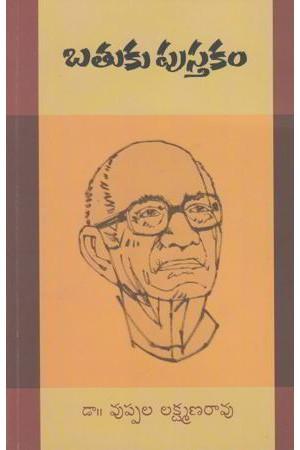


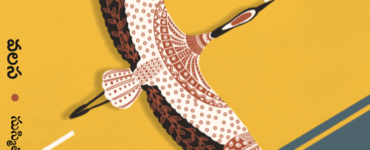

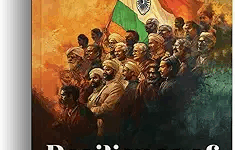
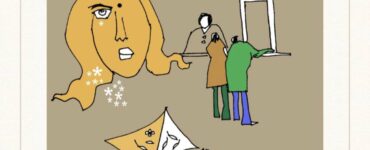
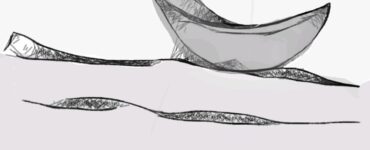
Very interesting.